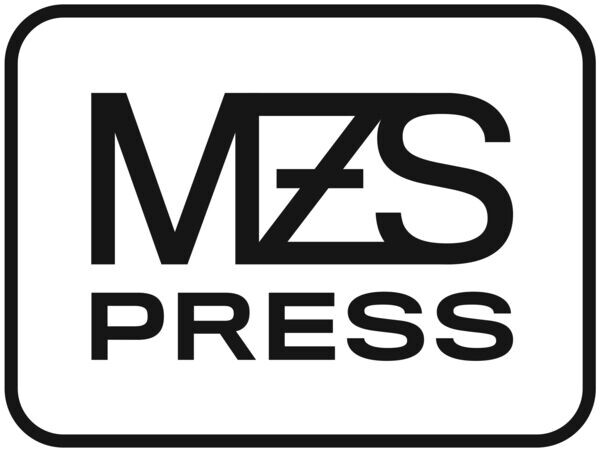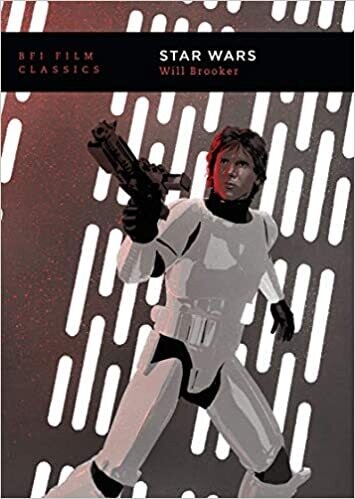

The Arts Bookstore of the Internet
Created by Matt Zoller Seitz
Directed by Judith Carter
“If you only read the books that everyone else is reading, you can only think what everyone else is thinking.”
Haruki Murakami
Photo by Point Normal on Unsplash
Star Wars (BFI Film Classics) by Will Brooker (Paperback, NEW)
The release of Star Wars in 1977 marked the start of what would become a colossal global franchise. Star Wars remains the second highest-grossing film in the United States, and George Lucas's six-part narrative has grown into something more: a culture that goes far beyond the films themselves, with tie-in toys, novels, comics, games and DVDs as well as an enthusiastic fan community which creates its own Star Wars fictions. Critical studies of Star Wars have treated it as a cultural phenomenon, or in terms of its special effects, fans and merchandising, or as a film that marked the end of New Hollywood's innovation and the birth of the blockbuster.
Will Brooker's illuminating study of the film takes issue with many of these commonly-held ideas about Star Wars. He provides a close analysis of Star Wars as a film, carefully examining its shots, editing, sound design, cinematography and performances. Placing the film in the context of George Lucas's previous work, from his student shorts to his 1970s features, and the diverse influences that shaped his approach, from John Ford to Jean-Luc Godard, Brooker argues that Star Wars is not, as Lucas himself has claimed, a departure from his earlier cinema, but a continuation of his experiments with sound and image. He reveals Lucas's contradictory desires for total order and control, embodied by the Empire, and for the raw energy and creative improvisation of the Rebels. What seemed a simple fairy-tale becomes far more complex when we realise that the director is rooting for both sides; and this tension unsettles the saga as a whole, blurring the boundaries between Empire and Republic, dark side and light side, father and son.
In his foreword to this new edition, Will Brooker discusses is how subsequent films in the series, specifically Rogue One (2016) and The Last Jedi (2017), foregrounded and developed the themes of opposition that are at the heart of Star Wars. He shows how Derridean theories of opposites which become undermined and subverted, and which change places are made more clear with hindsight and provide us with a useful lens for looking back at the 1977 Star Wars.
- Publisher : British Film Institute; 2nd edition (October 29, 2020)
- Language : English
- Paperback : 100 pages
- ISBN-10 : 1839021632
- ISBN-13 : 978-1839021633
- Item Weight : 5.8 ounces
- Dimensions : 5.62 x 0.21 x 7.99 inches
About Our Store
MZS.Press is the online arts bookstore founded by author, critic, and filmmaker Matt Zoller Seitz and Directed by Judith Carter. It offers new, used, signed, collectible, and rare books on film, TV, music, photography, and the visual arts. The store was launched in 2019 on a different platform and has expanded to incorporate arts books published by MZSPress's private imprint: titles currently include Seitz's The Deadwood Bible: A Lie Agreed Upon and Dreams of Deadwood, about the HBO Western, and Walter Chaw's A Walter Hill Film.
Our deepest wish is to promote, encourage, and distribute work by small presses, academic presses, and individuals. Extraordinary work tends to get swallowed up on giant platforms like Amazon and Barnes & Noble. The titles featured here are personally selected by a group of curators and advisors, including Seitz and an array of critics, artists, journalists, educators, publishers, and arts mavens who are known for their ability to suss out what Seitz's jazz musician dad liked to call "the good sh*t."
In Honor of the greatest auteur of our time, Judith is using one of her favorite quotes by him.
"Every day, once a day, give yourself a present"
David Lynch (January 20, 1946-January 15, 2025)

About the Partners

Matt Zoller Seitz
Critic, Author, Filmmaker, MZS Press Creator
Matt Zoller Seitz is the Editor at Large and film critic of RogerEbert.com; Features Writer for New York Magazine and Vulture.com, Contributing Writer for D Magazine and Texas Highways as well as finalist for the Pulitzer Prize in criticism. His writing on film and TV has appeared in Sight and Sound, The New York Times, Salon.com, The New Republic and Rolling Stone. Seitz is the founder and original editor of the influential film blog The House Next Door, now a part of Slant Magazine.
Seitz has written, narrated, edited or produced over a hundred hours’ worth of video essays about cinema history and style for The Museum of the Moving Image, Salon.com and Vulture, among other outlets such as Texas Highways and AARP. His five-part 2009 video essay Wes Anderson: The Substance of Style was spun off into the hardcover book The Wes Anderson Collection. This book and its follow-up, The Wes Anderson Collection: Grand Budapest Hotel were New York Times bestsellers.
Other Seitz books include the New York Times bestsellers The Sopranos Sessions and Mad Men Carousel; TV (The Book), The Deadwood Bible: A Lie Agreed Upon, The Wes Anderson Collection: The French Dispatch and the new The Wes Anderson Collection: Asteroid City. He is also an interviewer, moderator, and film programmer who has curated and hosted film and TV presentations for the Museum of the Moving Image, IFC Center, San Francisco's Roxie Cinema, and other venues. In October 2024 he brought the legendary filmmaker Oliver Stone back to Dallas for a historic return to the city and the Texas Theatre, considered the biggest film event of Dallas in 2024 by Dallas Observer!
Judith Carter was in the Upscale and Luxury Hospitality Industry for most of her life. In 2004 she had a beautiful baby boy with Special Needs and put the pause on her career until 2017 to dedicate herself to him and then others, assisting and volunteering as a legal advocate ensuring the best medical care, evaluations and educations for Special Needs children and their families.
Matt and Judith were family friends for over 20 years. She was there with her family in support when his wife Jen passed away suddenly in 2006. Then just 6 weeks later while Matt was in Dallas; he and his Father, Dave, and Step-Mother, Genie, were there as support, when Judith was alone and her son received the first of many diagnoses that changed the trajectory of their lives. So it made sense in the turbulent year of 2020, Matt asked Judith to take over running the online store that has become MZS.press. The rest as they say is, "Their"-story.
